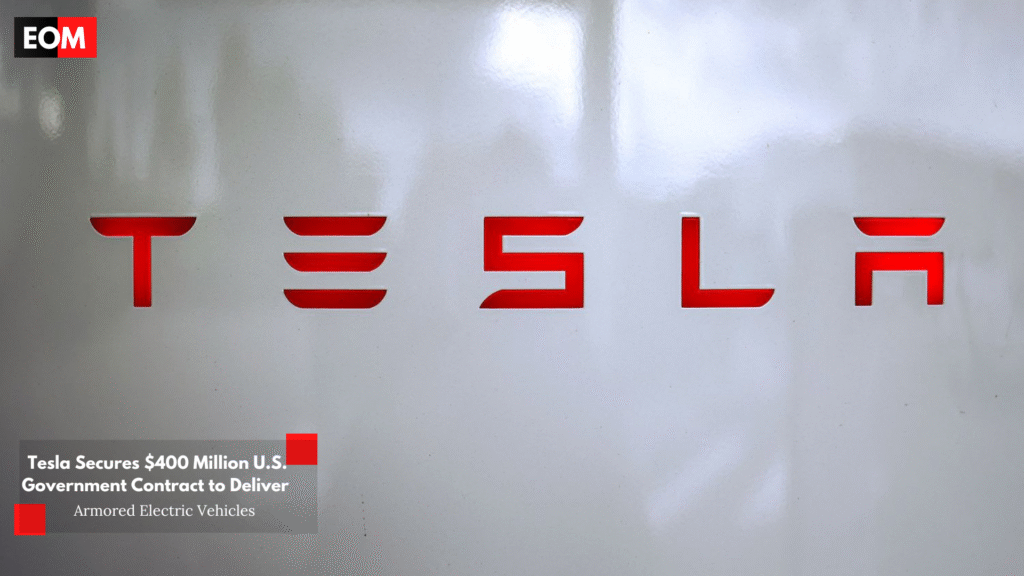Tesla Secures $400 Million U.S. Government Contract to Deliver Armored Electric Vehicles

Washington, D.C. – In a landmark development, Tesla Inc. has secured a $400 million contract from the U.S. State Department to produce armored electric vehicles (EVs)—marking the company’s formal entry into the defense sector. The agreement signals a bold expansion of Tesla’s ambitions beyond consumer vehicles, into the realm of high-security transport powered by clean energy and AI-driven technologies.
Pioneering Armored Mobility with AI and Sustainability
Under the contract, Tesla will adapt its vehicle platforms—likely based on the Cybertruck and Model X—with enhanced ballistic protection, AI-enabled threat detection, and next-gen defensive systems. The vehicles will include:
- Lightweight, impact-resistant composite armor
- Autonomous surveillance and LiDAR/radar-based threat detection
- Advanced route optimization using AI analytics
- Battery shielding against explosive impacts
- Smart bulletproof glass with dynamic tinting
Tesla’s self-driving capabilities could be repurposed for tactical and emergency scenarios, enabling features such as remote-controlled convoys and automated evasive maneuvers.
Strategic Implications for the Defense Industry
This move is aligned with Tesla’s growing portfolio in AI, robotics, and energy systems, and reflects the U.S. government’s increasing interest in sustainable defense infrastructure. If successful, Tesla’s armored EVs could:
- Reduce the carbon footprint of defense fleets
- Cut fuel and maintenance costs through efficient electric drivetrains
- Introduce low-noise, low-thermal signature transport ideal for field operations
- Enable renewable energy integration, including solar-based mobile charging units
Tesla’s battery systems may also be repurposed for defense-grade energy storage, supporting off-grid operations, field deployments, and mobile command centers.
Challenges Ahead
While the potential is significant, Tesla will face multiple hurdles:
- Military-grade testing & validation for armor, battery safety, and cyber-resilience
- Supply chain scalability for specialized components
- Navigating U.S. defense regulations and compliance protocols
- Public scrutiny around a traditionally consumer-focused brand entering military manufacturing
- Ensuring battery functionality under extreme threat scenarios, including EMP events and high-impact strikes
A Broader Vision for Defense Electrification
Tesla’s foray into defense could accelerate the global electrification of military and security vehicles, a trend already being explored by Rivian, GM Defense, and Ford. The company’s AI and energy storage capabilities may also lay the groundwork for future applications such as:
- Autonomous surveillance drones
- Cybersecure battlefield networks
- Mobile energy platforms for disaster and combat zones
Conclusion
Tesla’s $400 million armored EV contract represents more than just a business expansion—it’s a strategic step toward transforming how national security intersects with clean technology. If Tesla can navigate the engineering, regulatory, and ethical complexities ahead, it may not only set new standards for secure transport—but also help shape the future of sustainable defense innovation.

